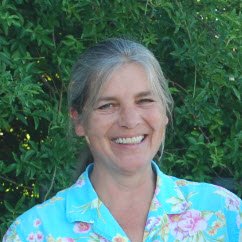

The Head Master William Hayne (1599–1624) presided over the new methods of examination, but his success did not save him from dismissal for alleged financial misdemeanours. This was for the morning in the afternoon the process was repeated in Greek After this, they had to write a passage of Latin and some verses on some topic chosen for the day. The boys had to copy the passage from dictation and then translate it, first into English, then into Greek and then into Latin verse. During the probation, the headmaster was required to open his copy of Cicero at random and read out a passage to the sixth form. The probation was imposed without consultation with the schoolmasters. Dow was concerned that the school was not meeting the challenge of being one of the great schools of the time and needed regular inspection to maintain and raise its standard. In 1606 Robert Dow, a member of the Company, instigated the process of “probation” or inspection, whereby the Court would visit the school three times each year and observe the school at work. It was rebuilt by 1675, after classes had met in temporary quarters for years. The outbreak of 1665 was curtailed by the Great Fire, which started on 2 September close to Suffolk Lane and completely destroyed the school buildings. The School was closed for at least a year in 16, with no new boys admitted until the contagion abated. Many parents kept their sons away from school, and boarders were summoned home. In 1626 the headmaster Nicholas Gray complained of the loss of pupils and was given £20 to keep the school going in 1630 he was given £40. The School was obliged to break up during these periods, losing pupils and sometimes unable to take on new ones. The 6 successive outbreaks of plague between 15 had a damaging effect on the School and its pupils.

His goal was that English as a language might claim its place side by side with Latin: “I love Rome, but London better, I favour Italy, but England more, I honour Latin, but worship English.” Mulcaster’s views were ahead of his time: he advocated the importance to children of relaxation and games, and a knowledge of the countryside and world of nature. One of his first pupils was Edmund Spenser, (poet laureate to Elizabeth 1). The first Head Master, Richard Mulcaster, wrote books and one of the first dictionaries in English. Also in 1508, Sir Steven Jenyns (Master in 1490, Lord Mayor in 1508) founded Wolverhampton Grammar School, which still maintains strong links with the Company. Mary’s Wike in Cornwall (which moved to Launceston shortly thereafter). Sir John Percival (Master of the Company in 1485, City Lord Mayor in 1498) established a grammar school at Macclesfield in 1502, while in 1508 his widow founded one at St. Merchant Taylors’ was not the first school to be founded by members of the Merchant Taylors’ Company. Lawrence Pountney, where it remained until 1875.

The school was founded in 1561 by Sir Thomas White of the Merchant Taylors’ in a manor house in the parish of St.


 0 kommentar(er)
0 kommentar(er)
